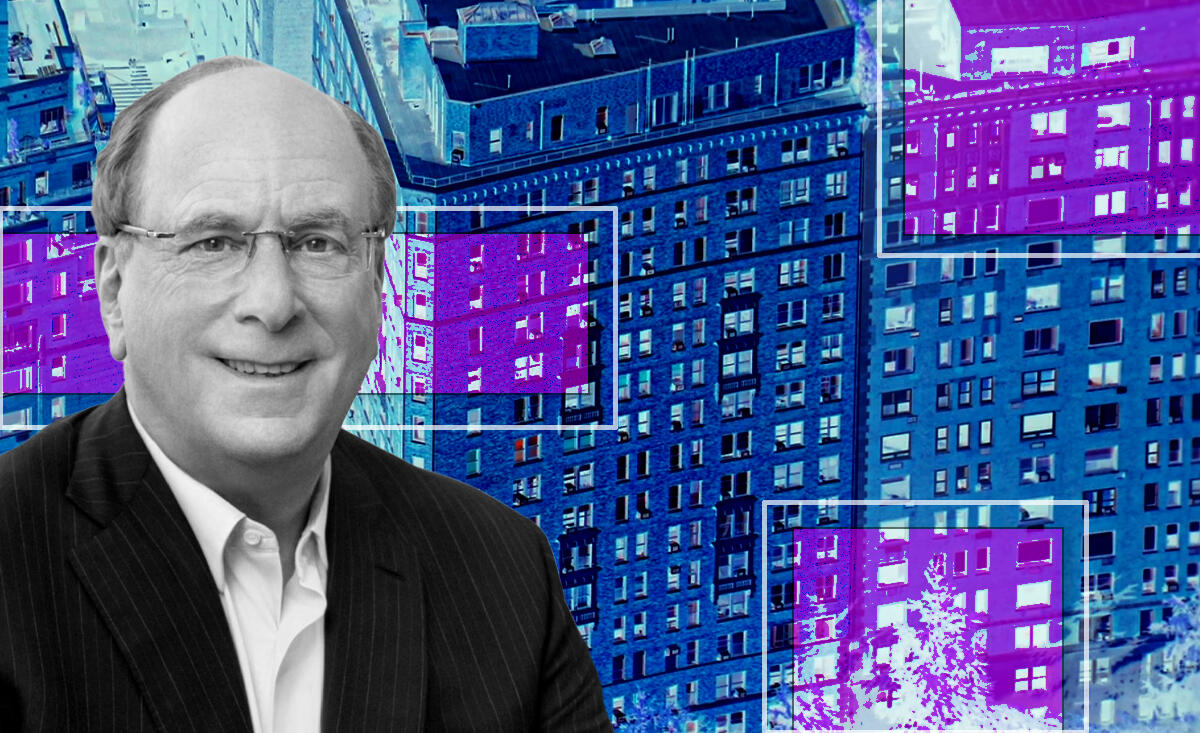 February frenzy: Manhattan rents smash records as bidding wars become norm
February frenzy: Manhattan rents smash records as bidding wars become norm
Trending
BlackRock sells stabilized UWS rental for $90M after landmark designation
West Side landlord Morris Schreiber bought the 125-unit building at 98 Riverside Drive

Tenant complaints in New York renting are as common as gum on the sidewalk, but few buildings have a StreetEasy page dedicated to griping.
One Upper West Side property is special that way.
For more than eight years, tenants have flocked to a forum to gripe about unaddressed repairs, revolving-door tenancies, and “filthy common areas” in BlackRock’s purportedly luxury rental at 98 Riverside Drive. One labeled it “a derelict building that is not maintained.”
Now tenants will be bringing their complaints to a new owner: Morris Schreiber. This week, BlackRock, the landlord since 2008, sold the property to Schreiber for $90 million, records show.
BlackRock declined to comment on why it sold the building and Schreiber, whose portfolio is heavily concentrated on the Upper West Side, according to the site Who Owns What In NYC, could not be reached for comment.
However, property records offer clues to the investment firm’s motivation for selling — and the potential upside for the new landlord.
Two years ago, 98 Riverside Drive was given landmark status, which subjects the property to stricter regulation by the city. Such buildings are supposed to be kept in a state of good repair.
That means the building’s 34 open violations, colorfully detailed on StreetEasy as including “catastrophic floods” affecting multiple apartments, could be reported to the city’s Landmarks Preservation Commission.
Read more
 February frenzy: Manhattan rents smash records as bidding wars become norm
February frenzy: Manhattan rents smash records as bidding wars become norm
 Manhattan rents are back to pre-pandemic levels after January spike
Manhattan rents are back to pre-pandemic levels after January spike
That agency could then issue a warning letter, and if the owner failed to remedy the violations, it could face a hearing and then a civil penalty. BlackRock’s specialty is investing, not property management or navigating city bureaucracy, and the firm may have wanted to wash its hands of its Upper West Side headache.
Another caveat of landmarked properties is they are costlier to renovate.
Combining apartments is one of the last remaining ways landlords can significantly raise revenue from rent-regulated units since the passage of the 2019 rent law. A loophole in the rent law allows owners to turn two adjacent vacant apartments into one and set a new market-rate rent. A little less than half the units at 98 Riverside Drive are rent-stabilized.
Under BlackRock’s ownership, 98 Riverside Drive appears to have undergone eight unit combinations. The Real Deal records show the property as holding 133 units, but a press release circulated by JLL, which brokered the deal, lists the building as a 125-unit property.
Now, under the building’s landmark designation, any work requiring a Department of Buildings permit would need a separate sign-off by the Landmarks Preservation Commission, according to a spokesperson for the agency.
Stitching together neighboring apartments would likely fall under DOB purview. Thus, Schreiber would need to obtain a certificate of no effect — a document confirming the proposed work is interior and won’t affect the protected exterior of the building — from the LPC before the Buildings Department can approve the project.
Squeezing extra revenue from stabilized units would have been an uphill battle for BlackRock, but the building still holds profit potential for its new owner.
Data from the Department of Finance lists the property’s tentative assessed value as nearly $32.2 million for the 2023 fiscal year. That’s 27 percent above the previous fiscal year and 12 percent higher than the building’s value before the 2019 rent law.
Astronomical rent growth in the city of late will likely drive revenue higher, compensating for the 2-4 percent rent bump the rent guidelines board is considering for stabilized units.
Plus, if the building’s alleged history of “revolving door” tenancies still holds true, there could be frequent opportunities for rent resets.




